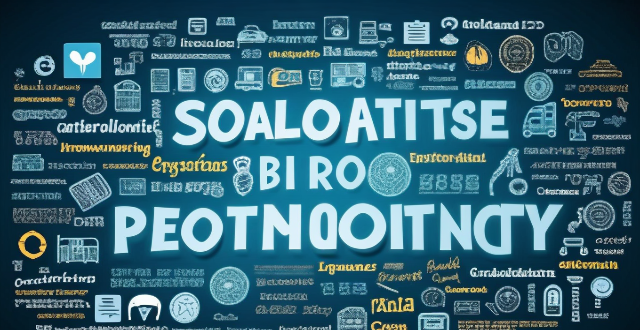The text discusses the challenges faced in implementing smart grid technology, which can be broadly classified into technical, economic, and social categories. Technical challenges include interoperability issues such as integration with existing infrastructure and lack of standardization, as well as cybersecurity concerns like data privacy and infrastructure vulnerability. Economic challenges involve high initial investment costs, limited government support, and difficulties in finding suitable financing options. Social challenges encompass public acceptance and awareness issues, trust concerns among consumers, legal and regulatory hurdles related to data privacy and energy policies, and policy uncertainty. Overcoming these challenges is essential for achieving a more efficient, reliable, and sustainable energy future.

Challenges Faced in Implementing Smart Grid Technology
Implementing smart grid technology is a complex process that involves various challenges. These challenges can be broadly classified into technical, economic, and social categories. Let's discuss each of these categories in detail.
Technical Challenges
Interoperability
- Integration with Existing Infrastructure: Integrating smart grid technology with the existing power system infrastructure can be challenging due to compatibility issues between different systems and devices.
- Standardization: The lack of standardization across different technologies and vendors makes it difficult to ensure interoperability between various components of the smart grid.
Cybersecurity
- Data Privacy and Security: As smart grids rely heavily on communication networks, ensuring data privacy and security becomes crucial. This includes protecting against potential cyber attacks and unauthorized access to sensitive information.
- Infrastructure Vulnerability: The increased connectivity in smart grids also exposes them to potential vulnerabilities, such as malware infections or denial-of-service attacks.
Economic Challenges
Cost Implications
- High Initial Investment: Implementing smart grid technology requires significant upfront investment in terms of infrastructure upgrades, equipment purchases, and training costs.
- Return on Investment: The payback period for smart grid investments can be long, which may discourage some stakeholders from investing in this technology.
Funding and Financing
- Limited Government Support: In some regions, there may be limited government support or incentives available for implementing smart grid technology, making it difficult to secure funding for projects.
- Financing Options: Finding suitable financing options for smart grid projects can be challenging due to the high risk associated with new technologies and uncertain returns on investment.
Social Challenges
Public Acceptance and Awareness
- Lack of Awareness: Many consumers are not aware of the benefits and advantages of smart grid technology, which can hinder its adoption rate.
- Trust Issues: Some consumers may have concerns about trusting automated systems to manage their energy usage and may prefer traditional methods.
Regulatory Framework
- Legal and Regulatory Hurdles: Navigating through legal and regulatory frameworks related to data privacy, cybersecurity, and energy policies can be complex and time-consuming.
- Policy Uncertainty: The lack of clear policies and regulations regarding smart grid implementation can create uncertainty among stakeholders and delay project initiation.
In conclusion, implementing smart grid technology presents several challenges that need to be addressed by all stakeholders involved. By overcoming these challenges, we can pave the way for a more efficient, reliable, and sustainable energy future.